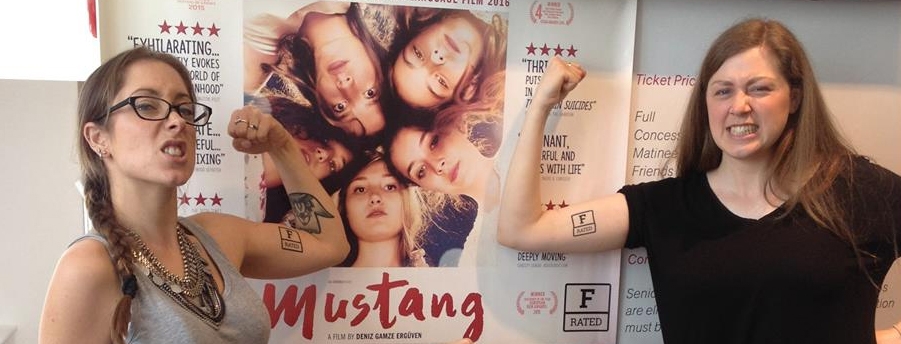
Plymouth Arts Centre staff promoting the F-Rating, which we started using in January 2016
It’s International Women’s Day and you may have seen that Plymouth Arts Centre has been all over the BBC news and social media over the weekend in relation to the F-Rating, due to movie website IMDb adopting the classification. We even got a re-tweet by Emma Watson and The Guardian’s Hadley Freeman! Exciting as this is, it has made us think more seriously about explaining exactly why we adopted the F-Rating in the first place and why it is that as the only independent cinema in the city we think it is so important to highlight women in cinema.
The F-Rating was started in 2014 by Holly Tarquini at the Bath Film Festival. In 1985 Alison Bechdel, an American comic artist devised a way of judging whether a film was feminist-friendly. There were three rules:
-
A film has to have at least one scene with two named women in it
-
Who talk to each other about
-
Something besides a man
You’d think that must apply easily to hundreds of films, right? Right? Try it. Not so easy is it? While it’s a funny and important method of categorisation and a brilliant starting point for a huge debate, the limitations it imposed meant that some films which did have strong female leads just didn’t pass the test – Run Lola Run is a classic example with has one of the most kick-arse female leads in*. This is where Holly and Bath Film Festival stepped in. They devised a new categorisation which was more intuitive, easy to apply, wider in its scope and equally, defiantly, feminist in its intentions.
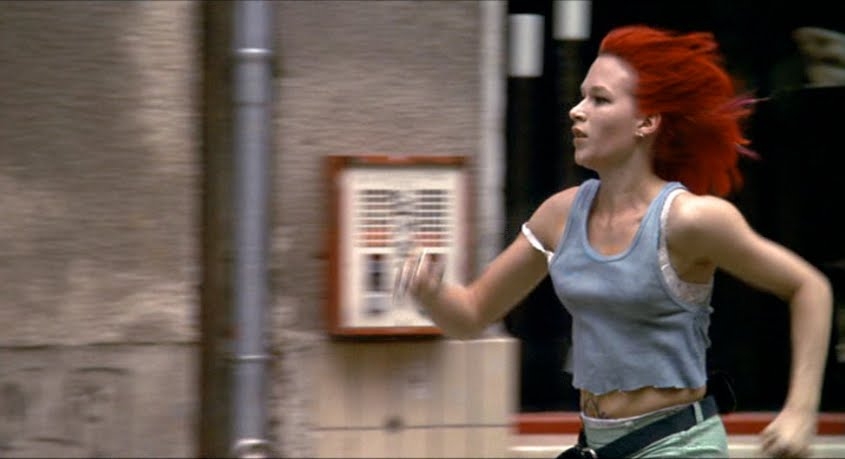
Run Lola Run *Disclaimer: Other kick-arse female leads are available.
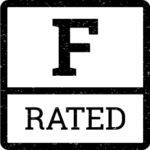
The F-Rated made three new rules to classify films. To qualify for the rating a film has to be any of the following:
-
Directed by a women
-
Written by a woman
-
Features significant women on screen in their own right.
The categorisation is a great shorthand way to simply see how many films get out there into our cinemas and helps audiences and the wider film community get a better understanding of the visibility of women in the film world, in front of the camera and behind it. The more the issue about women’s visibility in cinema is talked about, written about, seen and understood, the more studios, filmmakers, directors, producers and writers will act.
The Geena Davis Institute on Gender in Media has undertaken the biggest research into the statistics around women in film and found that:
- Men are seen and heard nearly twice as often as women.
- Women are seen on screen more than men in only one genre, horror, and that’s because they are the on-screen victims
- Women are underrepresented in all ratings categories included in the 100 highest grossing films of the past three years
- In Academy Award winning films women made up only 32% of screen time and only 27% of speaking time
- And yet….female led films do better at the box office, earning 16% more than male-led films. Look at Hidden Figures as a perfect example of this at work.
Founded by Academy Award®-winning actor and advocate Geena Davis, the Institute is the only research-based organization working within the media and entertainment industry to engage, educate and influence the need to dramatically improve, gender balance, reduce stereotyping and create diverse female characters in entertainment. From the statistics quoted above it’s pretty obvious that this work needs to be done.
We live in a diverse culture so isn’t it right that that is reflected in what we see on screen? Independent cinemas like Plymouth Arts Centre are uniquely placed to do that. We choose our own programmes, we try to show audiences that there are a multitude of worlds out there to see. We are crucibles for change and provokers of thought. Our programming should, can and does actively try to be representative of the multi-faceted visual cultures of the wider world. Women make up 50% of that world. We need to see ourselves on the big screen but more than this we need to see our best selves up there, the selves we think we can be and dream to be. Women on screen need to be in lead roles, not only supporting roles.
As Geena Davies has said, “Media can be the cure for the problem it has created.”
Special Offer: F-Rated Bundle
We’ve introduced a special offer to make it more affordable to see the wide range of F-Rated films in our programme: get each ticket for £7 when you book for 3 or more F-Rated Films at the same time.
F-Rated Films Coming Up
You can recognise F-Rated films by the ‘F’ logo on many of the films listed on our What’s On page.
Anna Navas, Film Programmer
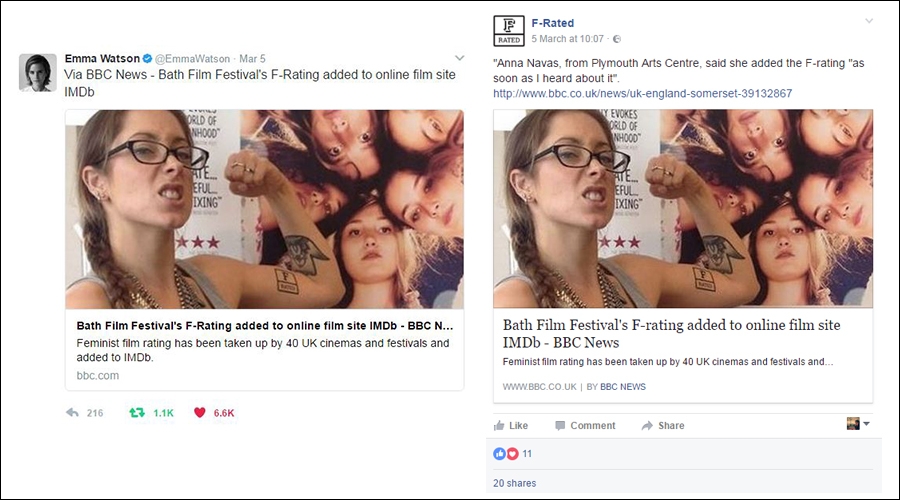

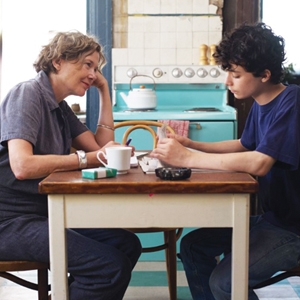
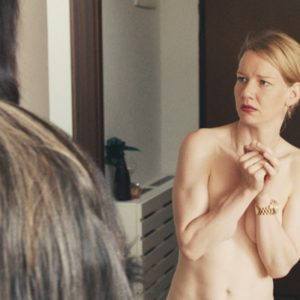
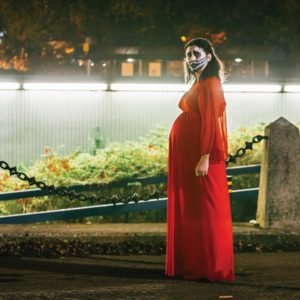
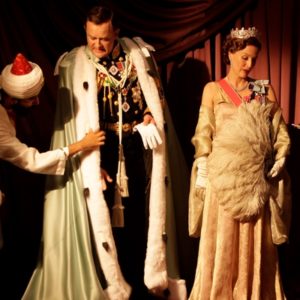
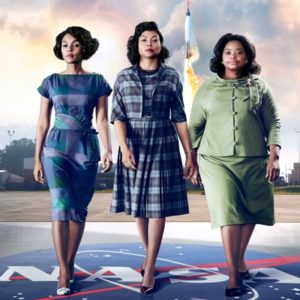
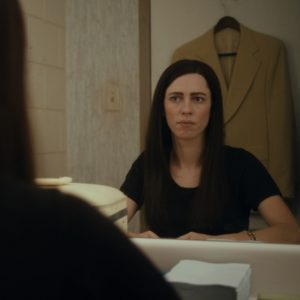

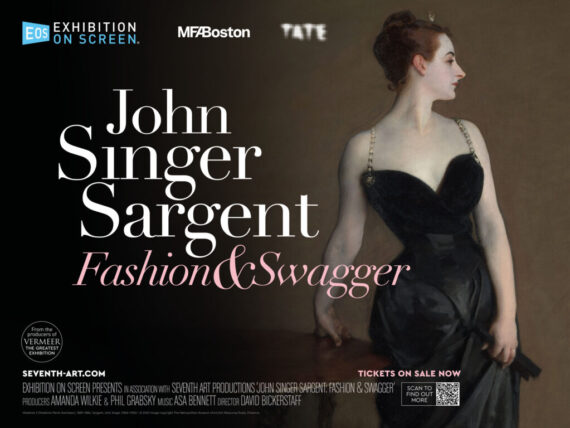



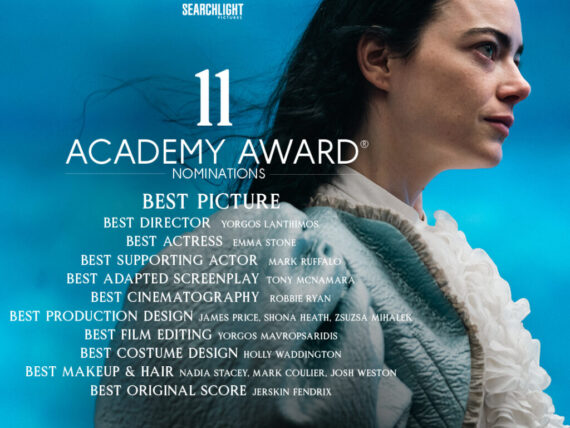
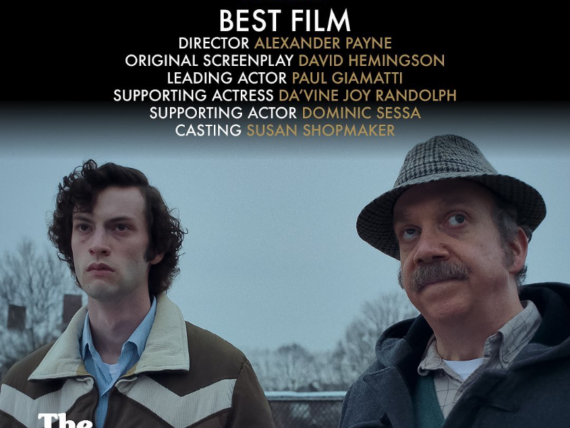
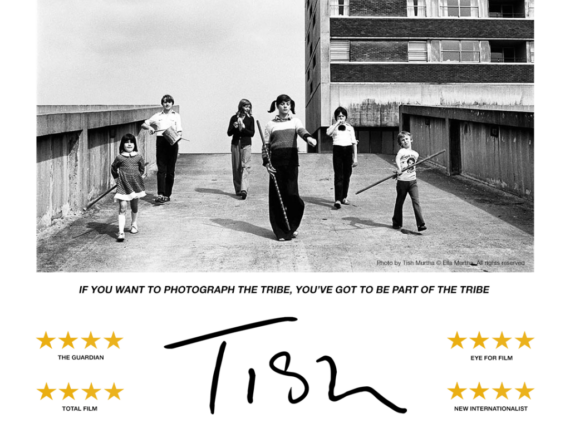

Comments
Comments are closed.